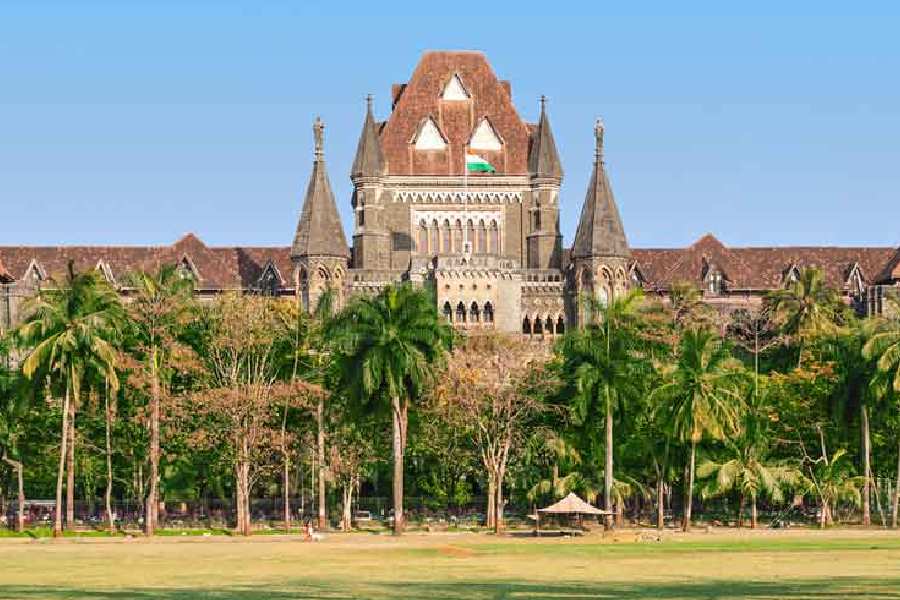The arrest of ICICI Bank's former Managing Director and Chief Executive Officer (CEO) Chanda Kochhar and her husband Deepak Kochhar by the Central Bureau of Investigation (CBI) in a loan fraud case was "without application of mind and due regard to the law", amounting to an "abuse of power", the Bombay High Court has said.
A division bench of Justices Anuja Prabhudessai and N R Borkar had on February 6 held the Kochhars' arrest as illegal and confirmed a January 2023 interim order passed by another bench granting them bail.
In the order made available on Monday, the court said the CBI has been unable to demonstrate the existence of circumstances or supportive material based on which the decision to arrest was taken.
The absence of such circumstances renders the arrest illegal, it said.
"Such routine arrest without application of mind and due regard to the law amounts to an abuse of power," the court said.
The court also refused to accept the probe agency's contention that the arrest was made as the Kochhars were not cooperating with the probe and said the accused had a right to remain silent during interrogation.
"The right to silence emanates from Article 20(3) of the Indian Constitution, which gives an accused the right against self-incrimination. Suffice it to say that exercise of the right to remain silent cannot be equated with non-cooperation," it said in the order.
The CBI arrested the couple on December 23, 2022, in the Videocon-ICICI Bank loan case.
They immediately moved the high court challenging the arrest and sought for the same to be declared illegal, and by way of interim order, sought to be released on bail.
On January 9, 2023, the court, in an interim order, granted the Kochhars bail, noting that the CBI had made the arrest casually and mechanically and without application of mind.
In the February 6 order, the bench noted that section 41A of the Criminal Procedure Code (CrPC) was introduced to avoid routine arrests.
It cited that this provision restricts the power to arrest when an accused person complies with the notice issued by the police to appear for questioning and mandates that an arrest shall be made only when the police are of the opinion that it is necessary.
The court held that while it was within the domain of the investigating agency to interrogate an accused and to arrive at a subjective satisfaction on the issue, the same was not "wholly immune from judicial reviewability".
"The court can consider whether the reasons for deprivation of liberty are rational, reasonable or fanciful," it said.
The bench further said that the first information report (FIR) against the Kochhars was registered in 2019, and they were summoned for questioning only in 2022.
"Despite the gravity of the offence, the petitioners (Kochhars) were not interrogated or summoned for a period of over three years from the date of registration of the crime," it said.
From June 2022, the Kochhars have been appearing before the CBI as and when notices under section 41A were issued to them, the bench said.
The CBI had claimed that the Kochhars were arrested as they were not cooperating with the probe and that their custodial interrogation was required to unearth the entire gamut of conspiracy.
Apart from the Kochhars, the CBI had also arrested Videocon group founder Venugopal Dhoot in the case. The high court granted him bail in January 2023 in its interim order.
The probe agency has alleged that private sector lender ICICI Bank had sanctioned credit facilities to the tune of Rs 3,250 crore to the companies of Videocon Group promoted by Dhoot in violation of the Banking Regulation Act, Reserve Bank of India's guidelines, and credit policy of the bank.
The CBI had named the Kochhars, Dhoot along with Nupower Renewables (NRL) managed by Deepak Kochhar, Supreme Energy, Videocon International Electronics Ltd and Videocon Industries Ltd as accused in the FIR registered in 2019 under the Indian Penal Code sections related to criminal conspiracy and provisions of the Prevention of Corruption Act.
The agency has alleged that the ICICI Bank sanctioned credit facilities to the tune of Rs 3,250 crore to these companies in violation of norms.
It further claimed that as a part of quid pro quo, Dhoot made an investment of Rs 64 crore in Nupower Renewables through Supreme Energy Pvt Ltd (SEPL) and transferred SEPL to Pinnacle Energy Trust managed by Deepak Kochhar through a circuitous route between 2010 and 2012.
Except for the headline, this story has not been edited by The Telegraph Online staff and has been published from a syndicated feed.











